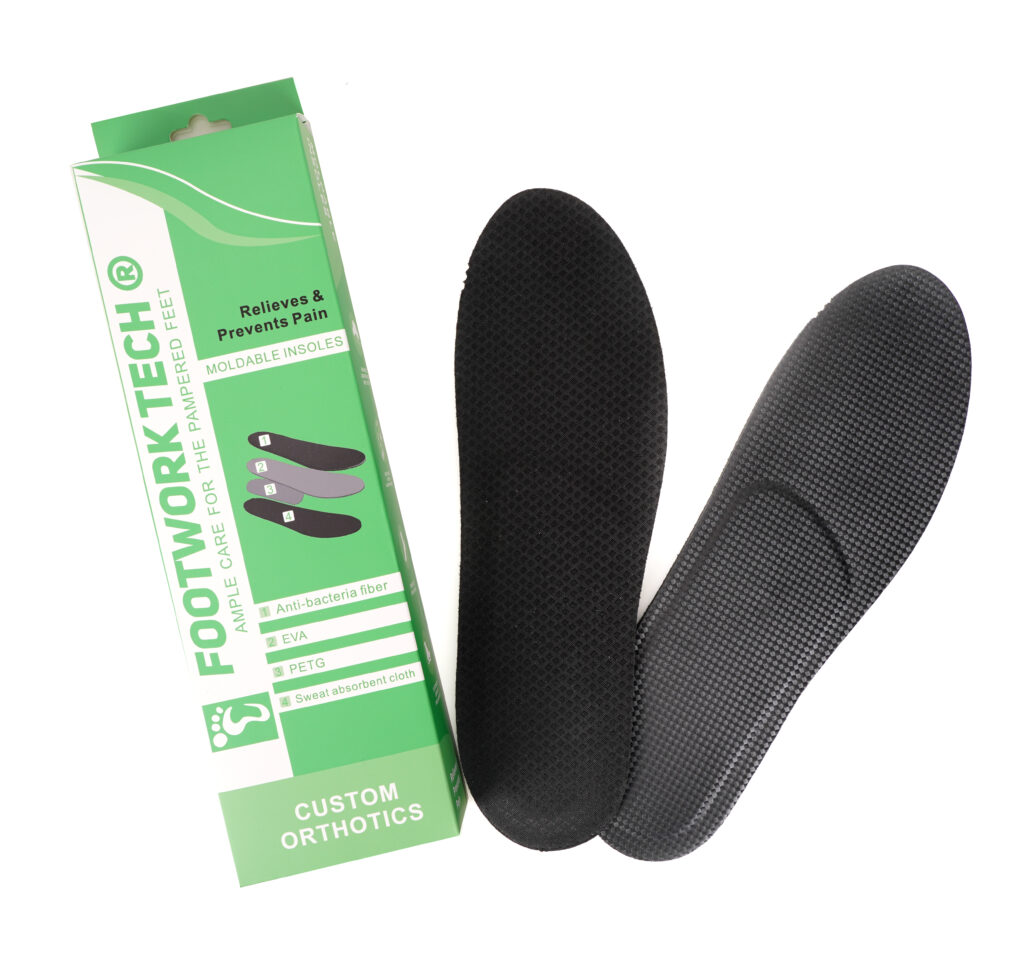
The average American walks about 3,000 to 4,000 steps per day – although the U.S. Department of Health and Human Services recommends 10,000 steps! Regardless of where you are on the step spectrum, we spend a lot of time on our feet; a fact that is often neglected in shoe design in a world where fashion takes precedence over function. Perhaps it is due to this, as well as growing awareness of the importance of foot health and care, that people are turning to orthotic support now more than ever.
With the growth of the demand for orthotics, the number of companies who provide them has also grown. Within the market, there are two primary types of orthotics: over-the-counter (standardized) and customized insoles. Below, we break down the pros and cons to each category so you can make the decision that’s right for your.
Over-The-Counter Orthotics
A number of brands now offer orthotics or insoles that can be purchased over the counter at big box stores and major drugstores. While a brand may offer a different product to support a specific ailment, they are all cut and molded for the “average” foot.
Pros
Cons
Custom Orthotics
Custom orthotics are made specifically for you from molds of your feet. For this reason, the insoles created will offer support precisely where needed.
Pros
Cons
Get The Best Of Both Worlds With DIY Custom Insoles
DIY Custom Insoles offer both the convenience of OTC orthotics and the effectiveness of custom orthotics at an affordable cost with our innovative technology.
Ready to learn more? Check out our process and purchase your starter kit here.
We believe everyone should have access to affordable custom orthopedic shoe inserts that reduce pain and make life more comfortable.